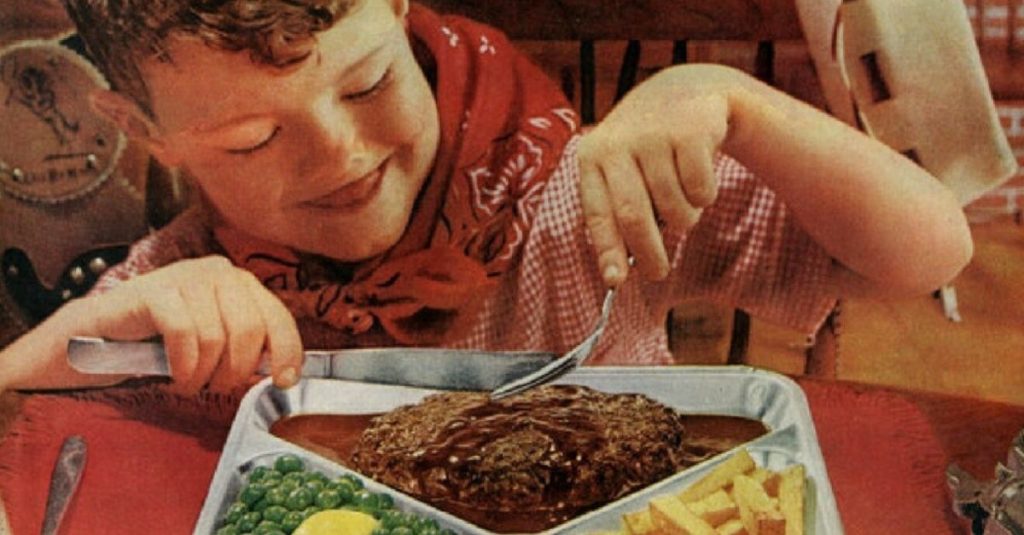If you don’t believe that food has a significant impact on our lives, here’s yet another example that it’s true.
The TV dinner was invented in 1952 when the people at Swanson realized they had 520,000 extra pounds of turkey after Thanksgiving.
A Swanson employee named Gerry Thomas came up with the idea for TV dinners after he noticed the metal trays airlines were using to keep meals warm. In 1954, the company debuted its new frozen meals.
Technological advances in home refrigeration meant huge changes for Americans. By 1944, 85% of homes had a refrigerator and later in that decade home freezers became common.
These advances specifically meant big changes for American women.
Before refrigerators and freezers were the norm in households, women spent a lot of their time making sure that food was ready to go for their families: this meant growing food, preserving it, and regularly going to the store to ensure that food was fresh and would be eaten before it went bad.
All of that went out the window with modern refrigerators that had freezers. And this meant American women had much more free time to pursue other activities and interests, including jobs.
And TV dinners meant that a lot of time spent preparing meals wasn’t necessary all the time anymore, either, freeing up even more of women’s time.
Watch the video below from Mental Floss to hear host Justin Dodd go into more detail about the interesting history of TV dinners.
Bon Appétit!
What’s your favorite TV dinner?
I’ll go first…Salisbury steak, baby!
Tell us what you think in the comments!






